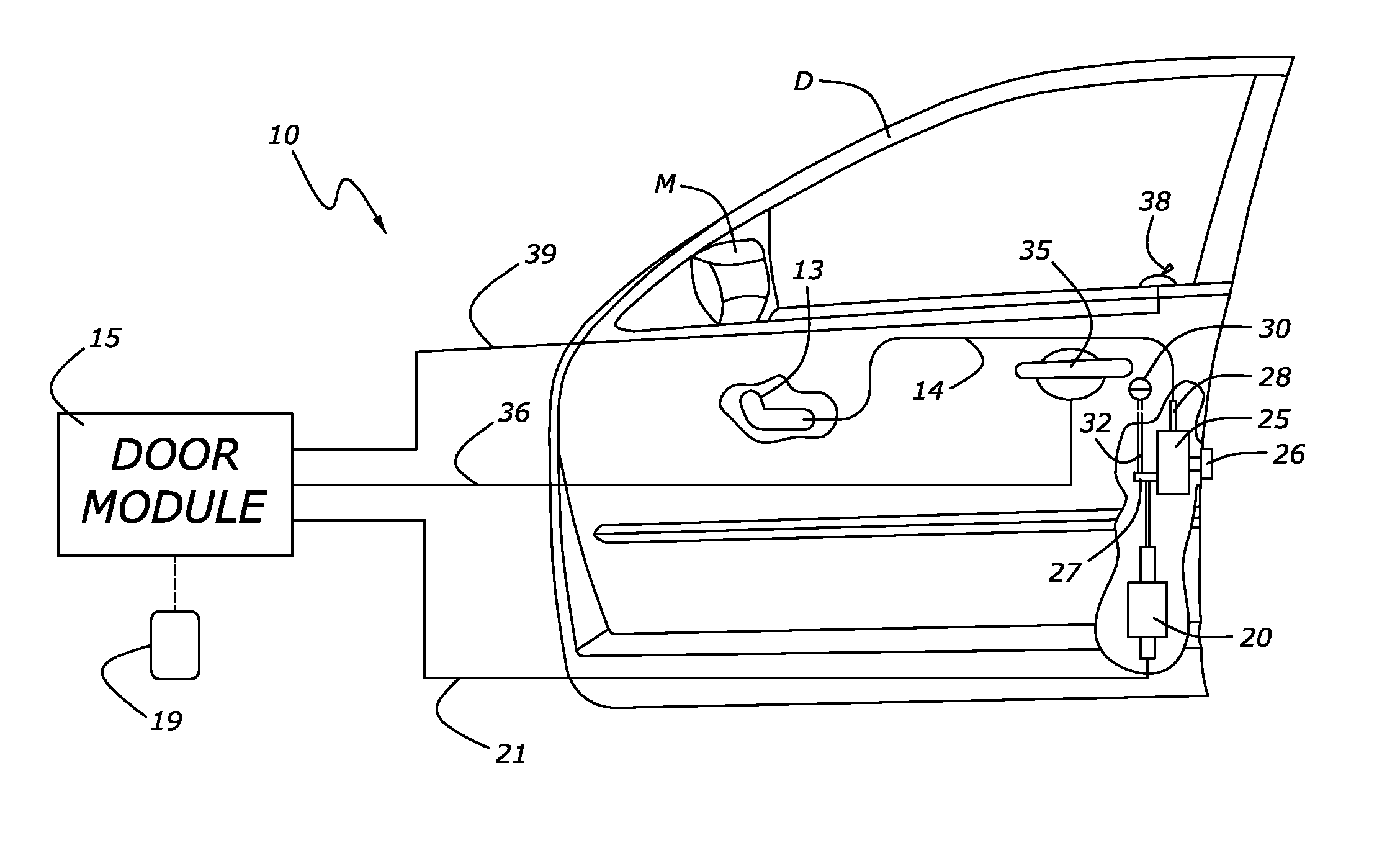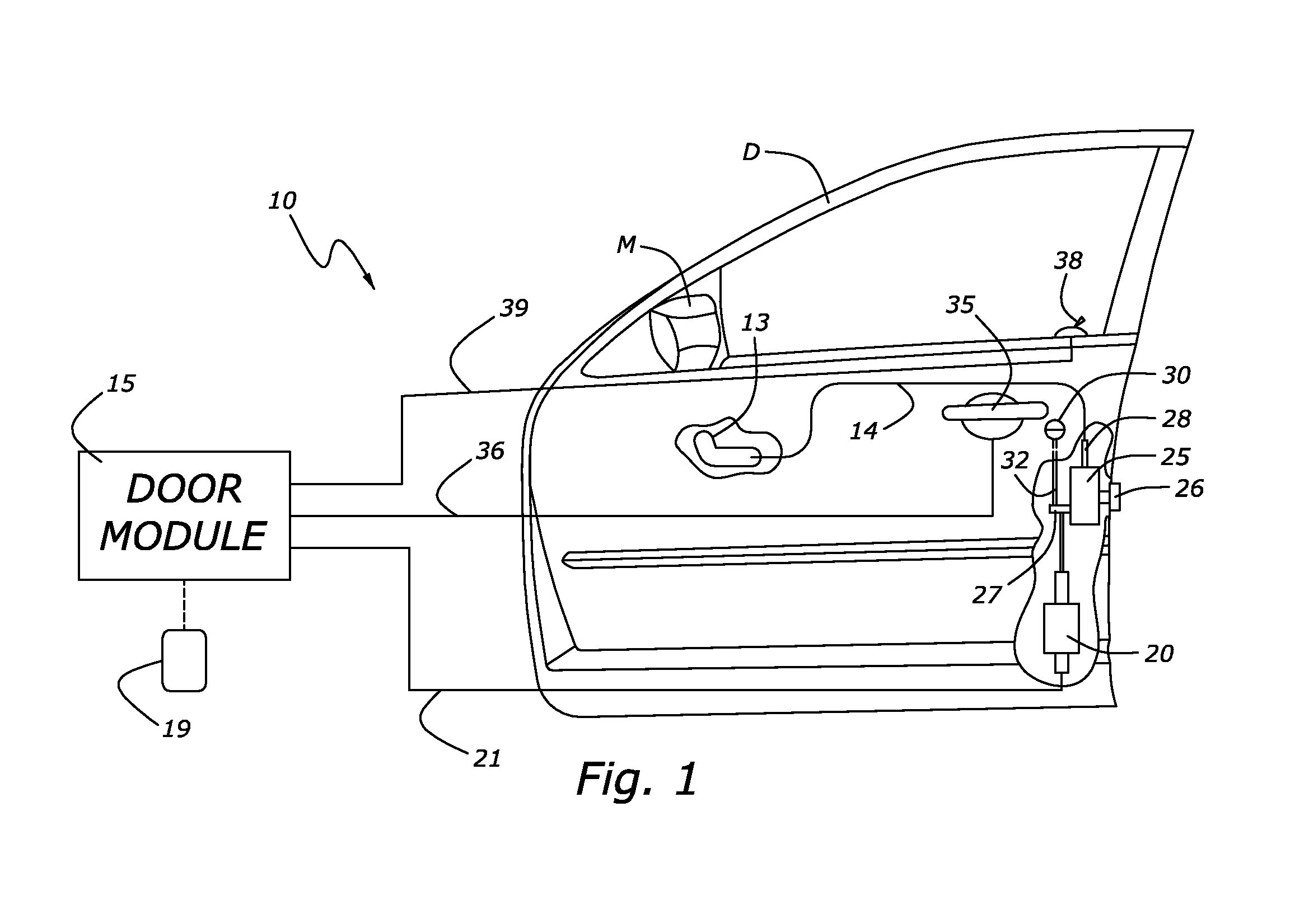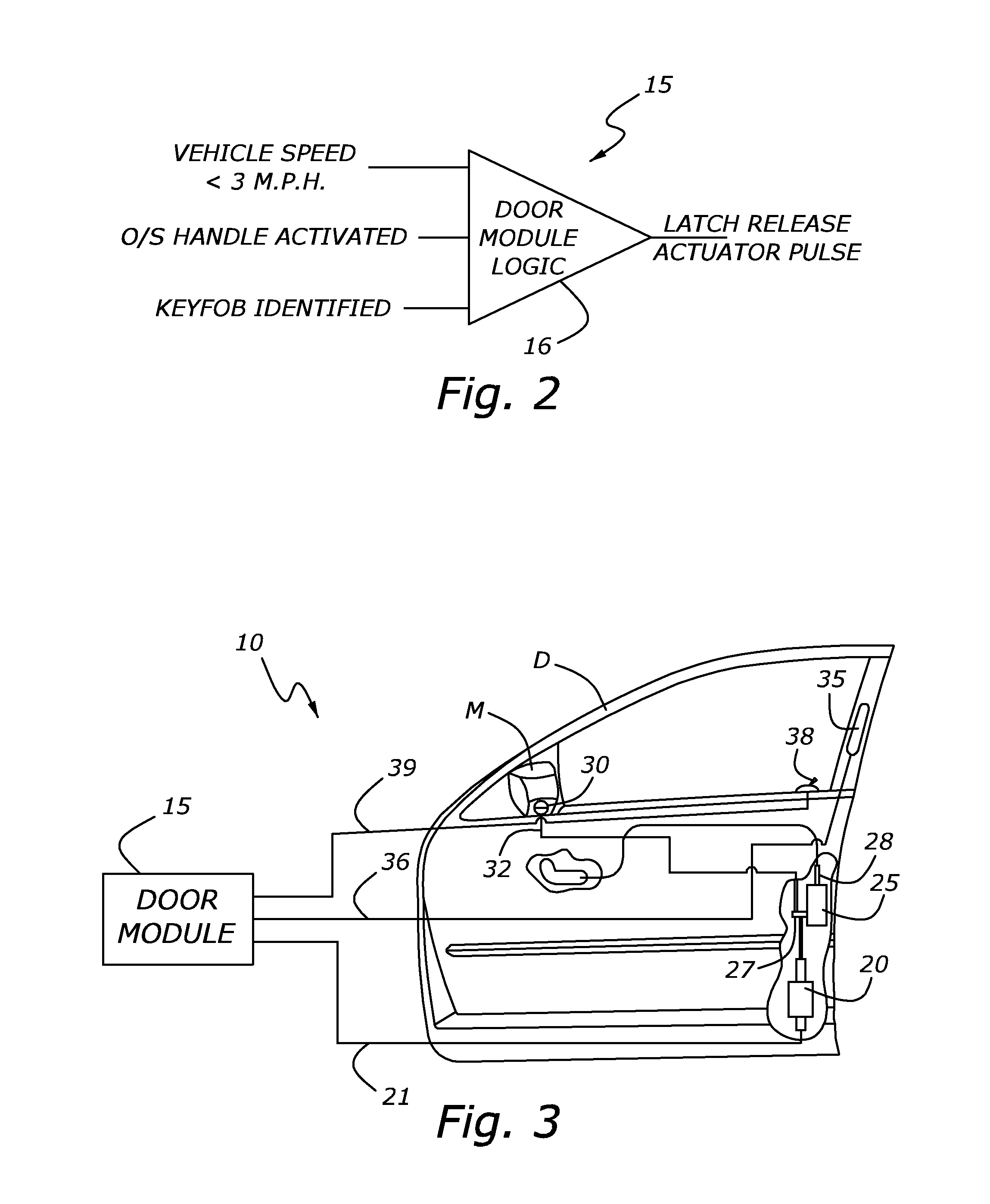Passive entry system for automotive vehicle doors
a technology for automotive doors and latches, applied in anti-theft devices, program control, instruments, etc., can solve the problem that none of these prior art systems provide a true passive entry operation, and achieve the effects of low manufacturing cost, carefree maintenance, and durable construction
- Summary
- Abstract
- Description
- Claims
- Application Information
AI Technical Summary
Benefits of technology
Problems solved by technology
Method used
Image
Examples
Embodiment Construction
[0032]Referring to the drawings, a passive entry system for a door on an automotive vehicle can best be seen. The passive entry system 10 includes an electronic door module 15 that can be mounted within the vehicle (not shown) remotely from the door D, such as within the instrument panel (not shown). The door module 15 is operable to receive a recognition signal from the operator, as will be described in greater detail below, to authenticate the operator through the received recognition signal, and generate a signal that unlocks the door and activates a door release actuator 20 through the wire 21 to open the door. A conventional latch mechanism 25 is mounted on the door D and engages a striker 26 supported on the automobile frame (not shown) to retain the door in a closed position that prevents entry into the passenger compartment of the vehicle. The latch mechanism 25 can be electronic or mechanical, and includes an outside release lever 27 that operates the latch mechanism 25 to ...
PUM
 Login to View More
Login to View More Abstract
Description
Claims
Application Information
 Login to View More
Login to View More - R&D
- Intellectual Property
- Life Sciences
- Materials
- Tech Scout
- Unparalleled Data Quality
- Higher Quality Content
- 60% Fewer Hallucinations
Browse by: Latest US Patents, China's latest patents, Technical Efficacy Thesaurus, Application Domain, Technology Topic, Popular Technical Reports.
© 2025 PatSnap. All rights reserved.Legal|Privacy policy|Modern Slavery Act Transparency Statement|Sitemap|About US| Contact US: help@patsnap.com



